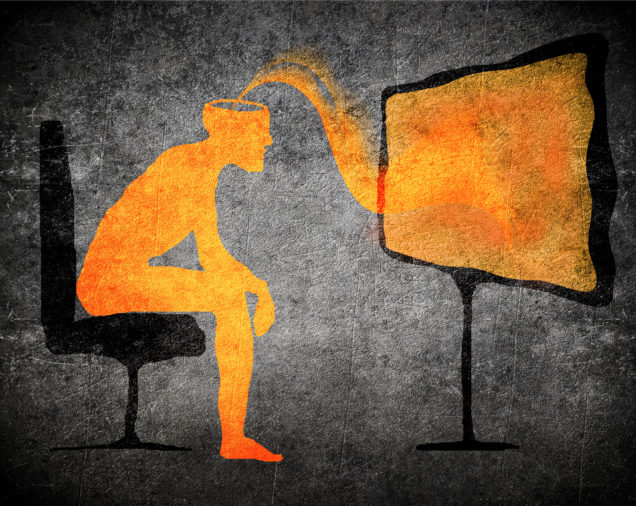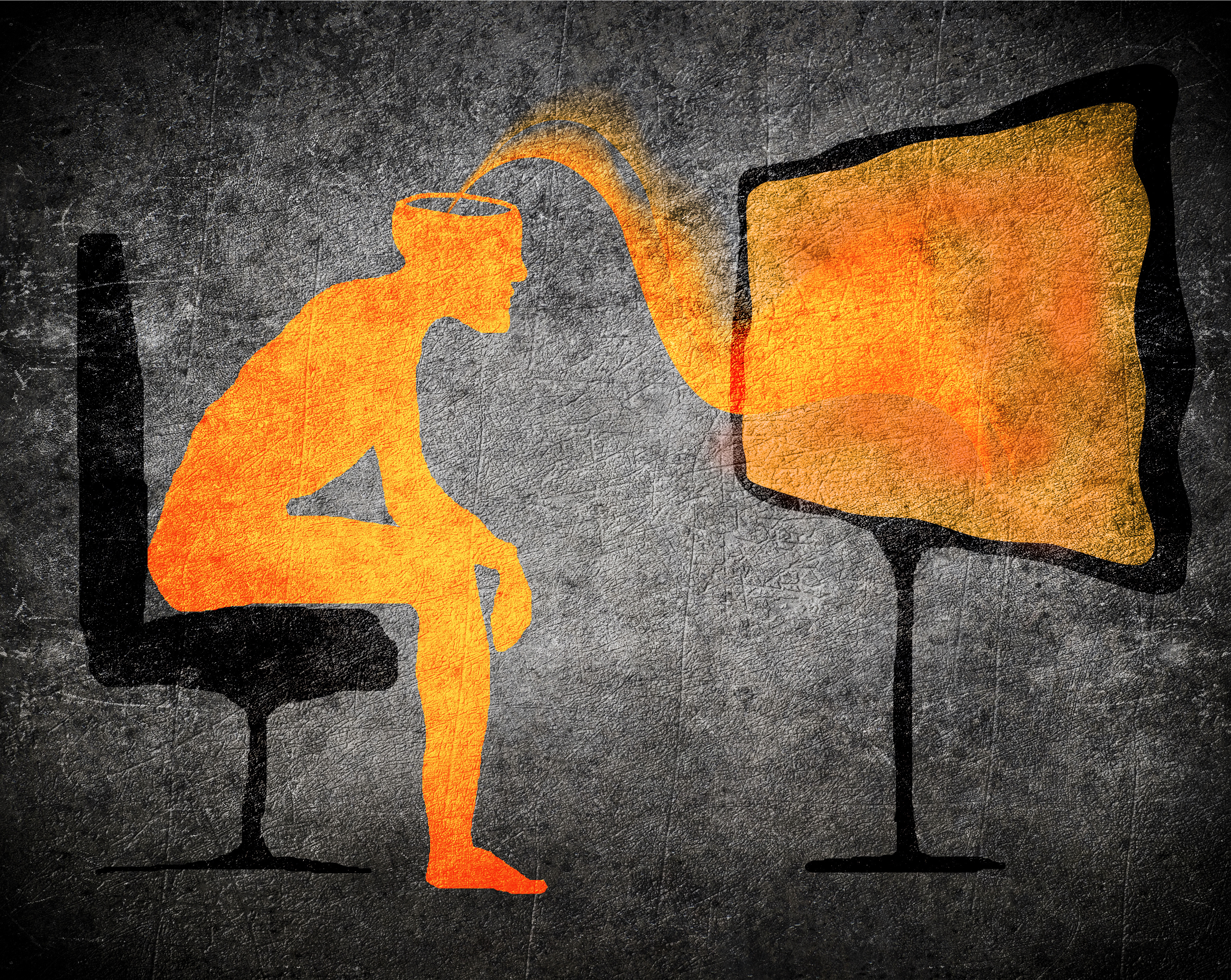When the television was first showing up in people’s houses, nobody knew how much this little box will affect everyone’s life. By 1960, 87 percent of American households had television sets, and they were watching an average of five and a half hours per day. (Gentzkow, 2006) It is undoubtable that new media made the world more connected. However, they also made us so immersed into the entertaining content and culture that we changed our reading behavior and thinking mode.
The situation today “made entertainment itself the natural format for the representation of all experience (Postman, 2006).” That is, the entertaining content in media has created an over-saturated entertainment culture. At the same time, this culture effect on creating content that is spectacle over substance and mile-a-minute rhythms over slow and steady stories. In the article “Television and Voter Turnout”, Matthew Gentzkow indicates television has generally been “bad”, because although television provides a new medium for delivering political information, it also offered consumers a wide array of new ways to use their leisure time. As a result, television can’t help to improve the level of political knowledge but cause fewer voters to go to the polls. This article proved the argument that entertaining content has infected our lives. Actually, not only politics, everything we do – even the most ostensibly important aspects like religion, education and thinking mode – has been infected by the imperative to entertain. In other words, over-saturating us with entertainment has shaped our discourse as one entirely centered around entertainment. Americans’ penchant for entertainment has infected the way they talk to each other in regular life.

The argument can not only apply to television but any social media platform today, especially video streaming platforms. If you go to YouTube website and click the “Trending”, you will find that the top 10 most popular videos are movie trailers, amusing videos, or music videos. From those video which ranks at 11-50, you may find few of them are based on educational purpose or lifestyle. The result is actually quite scary, because it indicates that people are blinded by the entertainment culture. Another terrible phenomenon is that we abandon the reading behavior we have in the past because of the emergence of social media. Consequently, we gradually lost our analysis ability. (Carr, 2008) For one thing, the birth of smartphone made us leave less time to ourselves. We are becoming accustomed to a communications style in which we receive a hasty message and we give a rapid response. (Turkle, 2008) Social media requires a person to jump between information quickly and not to spend too much time on any one piece of information. Again, a person is asked to consume a message as quickly as possible, grab it quickly, suck the juice out of it, and spit it out. By contrast, reading is a completely different model. Deep reading requires that you be able to stay focused because you have to think while you’re reading. It takes a person to continuously read tens of thousands of words, then pause a little, organize your thoughts, and perfect the structure of the book in your mind, forming an overall impression. This process is extremely demanding on your concentration, because once you’re interrupted, it’s hard to get back to the pre-established atmosphere and get out of the original book. (Carr, 2008) This is completely different from reading information from social media, which is the kind of teacher who says one word and you immediately raise your hand and shout “I know! I know!” in quick response. It’s not just a matter of habit, it fundamentally changes the way you think.
What’s more, due to the mobile phone and social media platforms, people can connect to potential networks and publish whatever they want to say at any time. It seems that for the first time, people have public discourse. But I don’t think the public discourse will be prosperous under the times of Twitter, which is limited to 250 characters for expression (Kwak, et al, 2010). This is why Postman said our analysis ability has died, 250 characters size determines that we cannot express too profound content, unless it is an academic discussion. Otherwise, we can quickly almost finished reading it. But in most times, the academic discourse cannot be published within 250 characters, even the poetry is difficult. Therefore, we are completely in a world where Postman says, we became the passive recipients of information, or even worse than the people sitting in front of the television. I think we are not able to stop social media. Yesterday, I sent a tweet, the content is this: “If today I need to go stop social media, the only way can I do this is to post opinions on social media. What a great irony.” Perhaps when Neil Postman had written the book, the people he wrote about who lost analytical ability would not have chosen to read his book. So the world is divided into two polarized parts. What a brave new world.
By Wenyu Zeng, BU Emerging Media Studies Master’s Student
Reference:
Carr, N. (2008). Is Google making us stupid? The Atlantic. http://www.theatlantic.com/magazine/archive/2008/07/is-google-making-us-stupid/6868/
Gentzkow, M. (2006). TELEVISION AND VOTER TURNOUT. The Quarterly Journal of Economics, 121(3), 931-972.
Kwak, H., Lee, C., Park, H., & Moon, S. (2010, April). What is Twitter, a social network or a news media? In Proceedings of the 19th international conference on world wide web (pp. 591-600). ACM
Postman, N. (2006). Amusing ourselves to death : Public discourse in the age of show business (20th anniversary ed.). New York, N.Y., U.S.A.: Penguin Books.
Turkle, S. (2008). Always-on/always-on-you: The tethered self. In J.E. Katz (Ed.) Handbook of mobile communication studies. Cambridge: MIT Press. pp 121-138.
